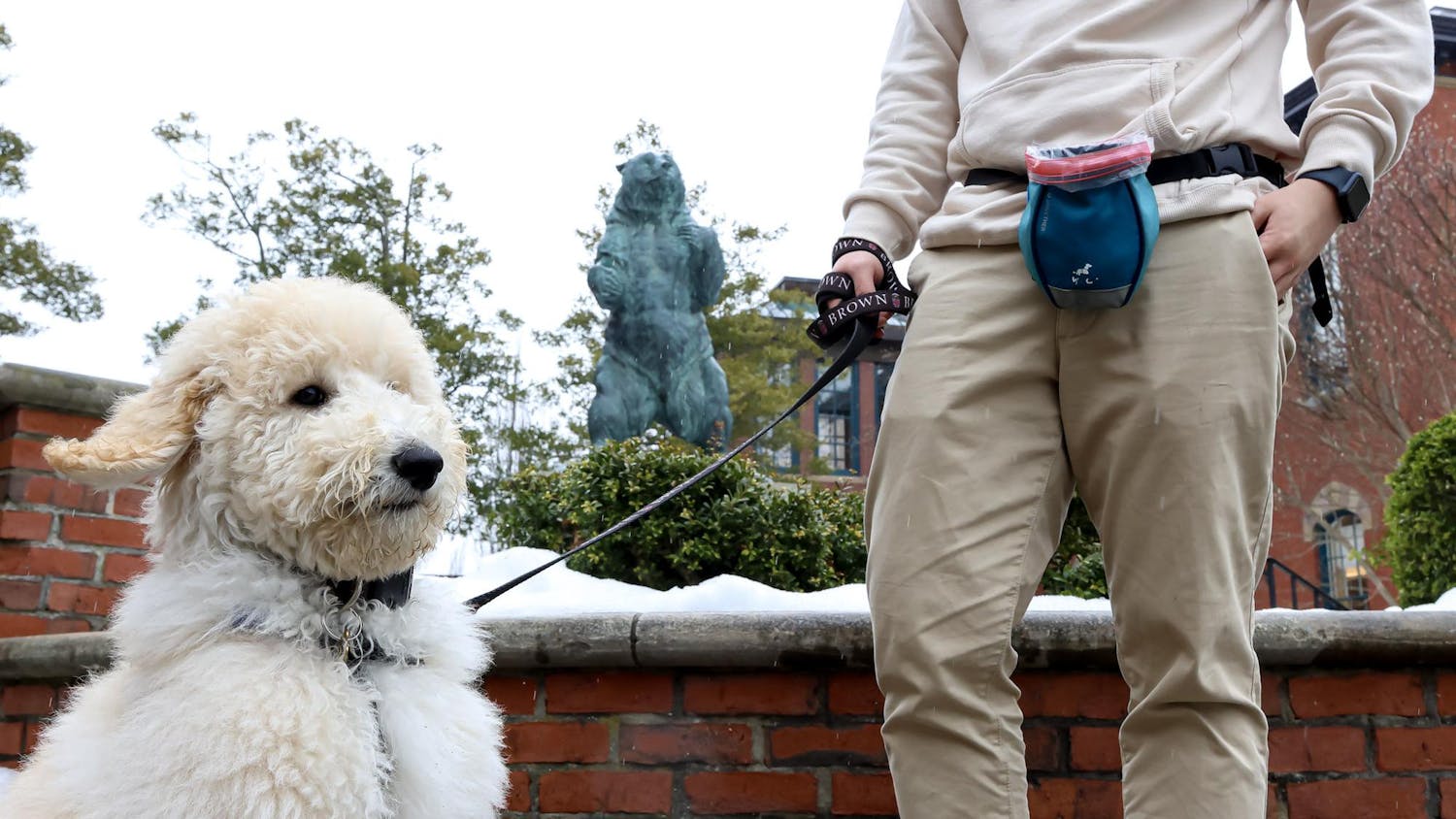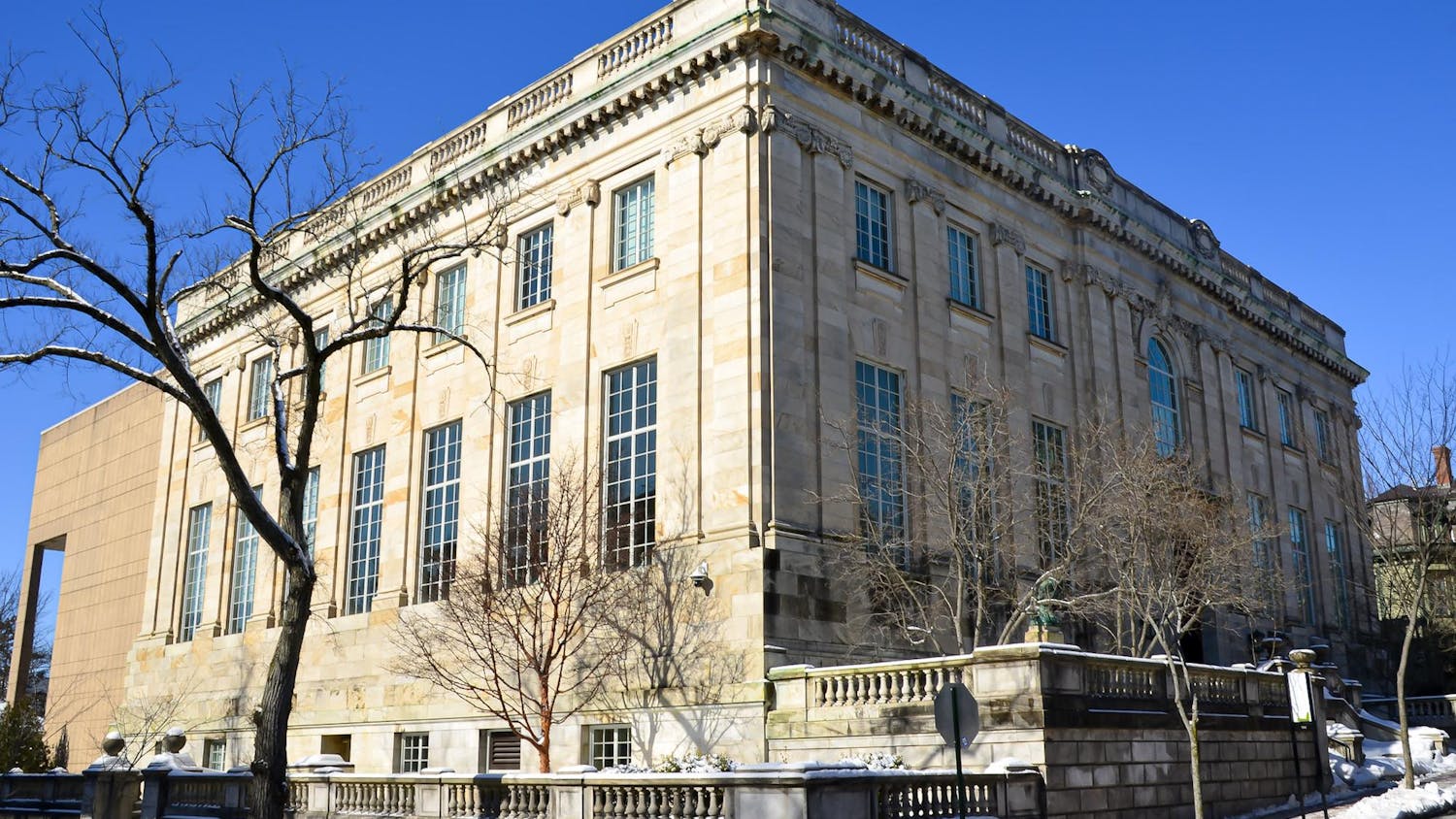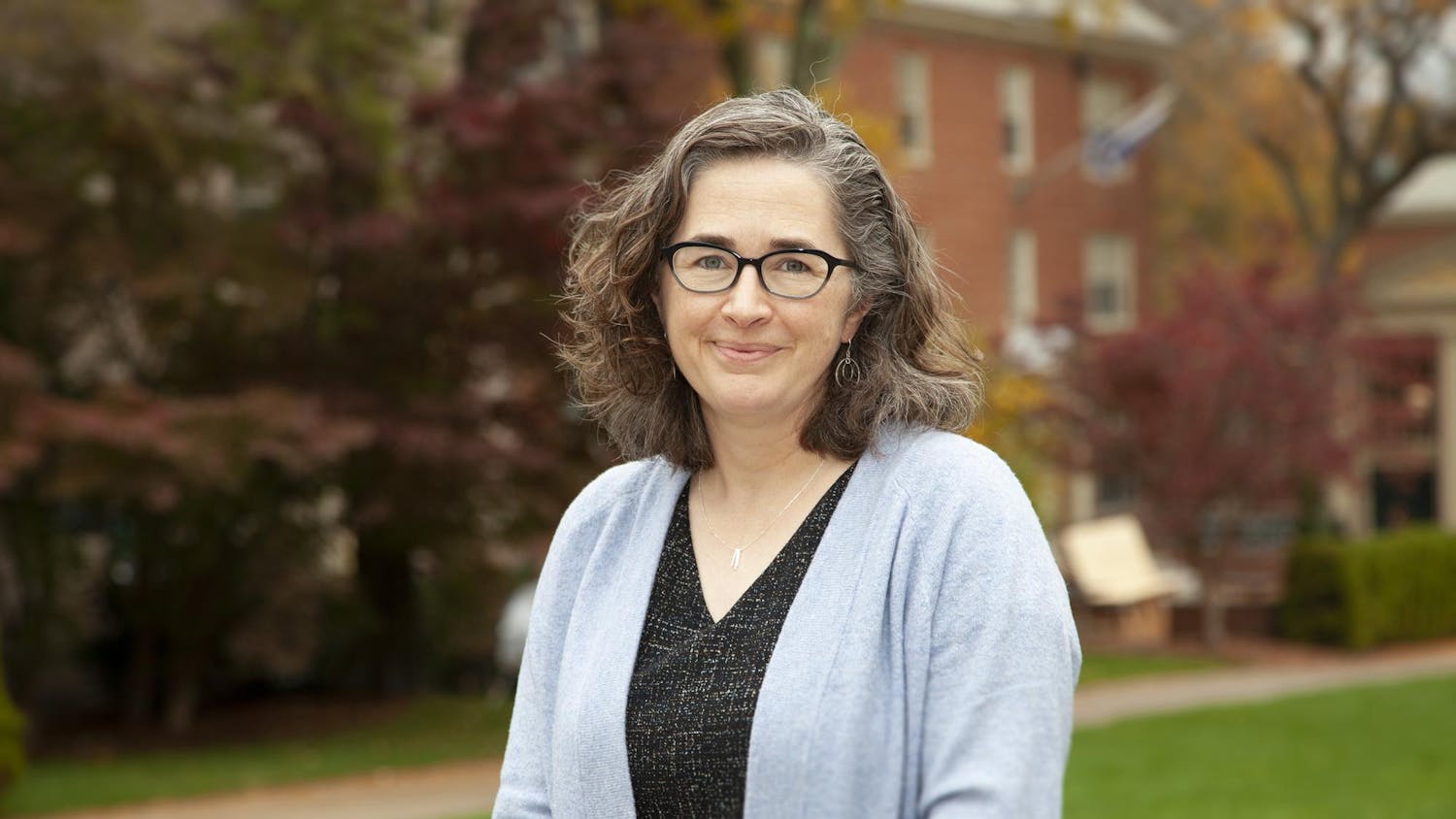“To be against fracking is like being against a cure for cancer,” said Stephen Moore, a Wall Street Journal columnist and economist, who argued in favor of fracking and free market principles in a talk Thursday.
Moore, who founded the fiscally conservative Club for Growth and serves on the Journal’s editorial board, addressed a full Martinos Auditorium in the Perry and Marty Center for the Creative Arts Thursday evening as part of the Political Theory Project’s Odyssey Lecture Series.
One of the goals of an Odyssey lecture is “to bring someone to campus who will bring ideas that will challenge you and who you will be able to challenge in return,” said John Tomasi, professor of political science and philosophy and director of the Political Theory Project, in his introductory remarks for Moore.
Moore, who labeled himself as both a conservative and a Republican, lauded the free market as “the goose that lays the golden eggs” and the system has “made the United States the richest country in the world.”
He decried the Affordable Care Act as one of recent history’s greatest economic failures and a critical impediment to economic growth. He predicted that the law will be repealed within the next six months.
“Obamacare is a mess and it’s not fixable,” Moore said, adding that it “denies people choices” and will lead to healthy Americans paying two to three times more for excessive health care packages that will help only the country’s sickest and oldest residents.
Moore then turned his focus to touting the growth of the domestic oil and natural gas industries as “what’s right” with the U.S. economy and emphasized the importance of technological innovations such as horizontal drilling and fracking.
“Because of these practices, there is more oil in North Dakota than there is in Saudi Arabia,” Moore said, predicting that by 2020, the United States will undergo a “seismic change” and become a net exporter of gas and oil.
For those concerned about global warming, fracking offers a solution to environmental problems by switching the country’s source of electric energy from coal to natural gas, Moore said.
After the lecture, audience members challenged Moore on whether the free market system allows for upward mobility both domestically and abroad.
Any countries with widespread poverty must “move towards a system of economy that promotes growth,” Moore said.
“Why is Mexico poor and why is America rich?” Moore asked rhetorically, pointing to the U.S. free market economy as the answer.
The question-and-answer session ended after four questions, though many audience members had their hands raised with more inquiries. Twenty students in Tomasi’s first-year seminar, POLS 0820D: “Freedom,” had the chance to pose questions to Moore during a dinner after the lecture.
Tomasi said he regretted the brevity of the question-and-answer session but looked forward to the dialogue between Moore and his students after the event.
“We bring in these speakers in part to educate” the speakers themselves, Tomasi said, adding that lecturers can learn from students’ questions.
“I think a well-educated person in the area of politics is a responsible ideologue,” Tomasi said, which he defined as a person who can “act on their views with a special power — they have listened to someone with whom they disagree.”
Some audience members said they appreciated Moore’s willingness to challenge majority opinions held on campus.
A Political Theory Project lecture like Moore’s talk is a “safe space to explore uncomfortable ideas,” said Noah Fitzgerel ’17.
ADVERTISEMENT




